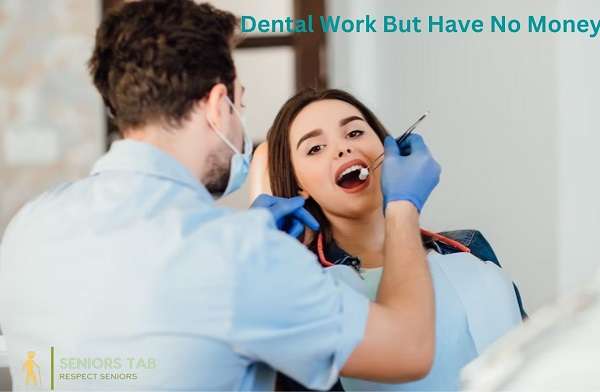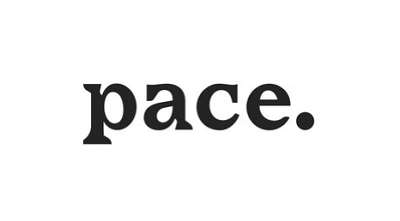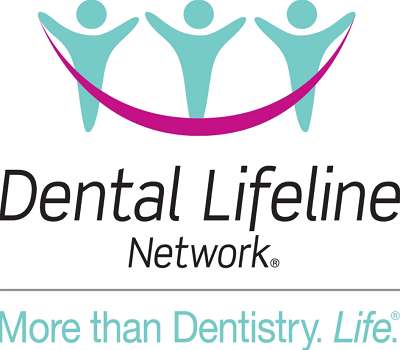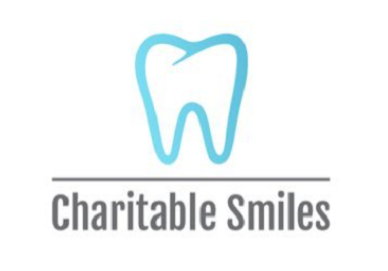What options are there for me to get free dental treatment and denture therapies if I need dental work but have no money? How can I obtain a free set of dentures? We’ll show you how to receive dental work even if you don’t have any money in this article.
When you need dental work but don’t have the money, it is really frustrating. But we can assure you that you are right now being led in the proper direction. We have included all the useful information that will aid in your dental care in this article.
Continue reading this guide as we have discussed several helpful ways and guidance to help you out with your necessary dental work for free.
- What should you do if you cannot hire a dentist?
- 1. Public Dental Programs
- i) Medicaid
- ii) Medicare
- iii) PACE
- 2. Dental Charities
- i) Dental Lifeline Network
- ii) Charitable Smiles
- 3. Regional dental offices
- 4. Dental Colleges
- 5. Beneficiaries of Grant Donors
- If you don't have any money, how can you fix your teeth?
- Which state offers the most affordable dental care?
- How much does fixing decaying teeth cost?
- Final Verdict
What should you do if you cannot hire a dentist?
There are several instances where a person’s poor money prevented them from affording the treatment for themself. They lack the resources to pay for a dentist. But if you’re one of those people who have dental problems and need treatment right now but can’t afford a dentist, there are still options available to you.

The most crucial component for consuming food in accordance with its nature is the tooth. People who have teeth are quite content to eat by chewing and tasting their food. However, many who have dental issues now recognize how crucial teeth are to enjoying meals and feeling comfortable. It also enhances the beauty and facilitates crystal-clear speech.
People who lack teeth undoubtedly experience difficulties with oral communication. Therefore, patients may experience tooth problems or lose a tooth. They must accept dental care as a necessary component of effective oral communication, as well as the taste of the food and their comfort with their teeth.
5 Best Ways To Get Dental Grants For Low-Income Adults
Many institutions, including the government and for-profit businesses, offer dental subsidies. These initiatives frequently help seniors, kids, single moms, and people with disabilities pay all or part of the cost of their dental treatment.
These dental grants greatly lower the price of dental care, and some even offer completely free dental care. You will need to adhere to the eligibility requirements and procedures, which will vary based on the organization providing the dental grant and your area.
They’ll cover your dental care after you pass the applications. We’ll include dental grants and the organizations that offer them in the sections that follow. This should assist you in locating the dental care you require.
1. Public Dental Programs
If the government offers dental help, that is one area to look at. Because most dental charities will determine your eligibility for federal or public help before providing you with free dental care, we put the government programs first.
Here are a few government initiatives you can look into for financial assistance with dental expenses.
i) Medicaid

For those with low incomes in America, Medicaid offers a health insurance program.. It is among the biggest American health insurers. You can qualify for Medicaid and receive free dental care if you have a low income.
Eligibility:
Low-income Application for Medicaid is open to US citizens and authorized immigrants. A low-income person is typically defined as someone who makes less than the state’s poverty level.
The state in which you live will determine the specific eligibility requirements. You must generally meet the following requirements:
- Using modified adjusted gross income, your state will assess your financial eligibility (MAGI).
- You live in the state where Medicaid will be provided to you.
- Even if your salary is larger, you still need medical care.
Service & Coverage
Your state of residence will determine the extent of coverage. Since so few states currently provide complete dental care, you must confirm with your state’s Medicaid office whether the treatment will be paid for.
Generally speaking, the operation must be required for medical reasons. For instance, there is a greater likelihood that Medicaid will pay for the surgery if it is necessary to do so in order to prevent infection or because of an impairment.
Examples include
- Removal of impacted wisdom teeth.
- Techniques to stop bleeding
- Treatment to stop tooth loss.
Medicaid will not pay for dental care that is merely cosmetic or done to make your teeth seem nicer rather than for a medical need.
How to Apply
Enter some basic information on the Medicaid Qualification page to see if you qualify for Medicaid if you’re a low-income adult under 65 without health insurance. Be aware that even if your income is insufficient to qualify you, other criteria like household size or a handicap.
Back the following step is to get in touch with your state’s Medicaid office if you are eligible or have Medicaid presently. The Medicaid Office in Your State can provide you with the necessary contact details. When you require dental work, ask the Medicaid agent from your state if it can be covered.
ii) Medicare

The national healthcare program for seniors and some persons with disabilities in the US is called Medicare. But it’s crucial to remember that Medicare’s dental coverage is extremely constrained.
Eligibility:
- Currently, Medicare covers
- Anyone 65 years of age or older.
- Younger disabled individuals.
- End-Stage Renal Disease patients.
Services & Coverage
Medicare will only pay for dental work if it is a required component of treating another ailment that is covered by Medicare. This indicates that it’s quite unlikely that the treatment will be reimbursed if you’re only going for dental work.
What is an instance in which dental work might be covered? For example, if you sustain an accident that necessitates dental work as part of a jaw restoration, Medicare may pay for the costs as long as the oral work is completed concurrently with the authorized surgery.
How to Apply
- Check your eligibility on the website if you don’t really have Medicare yet.
- Consult the Medicare offices in your state to find out if the dental treatment you require is one that is covered. Contact Medicare by phone at 1-800-633-4227 or online chat.
iii) PACE

The Medicaid and Medicare programs have a scheme named PACE that enables seniors to receive the care they require without having to enter a facility or nursing home. If you are a PACE participant, additional medical treatments, such as dental care, may be covered.
Eligibility
- 55 years of age or older is required.
- You must live in a neighborhood or location where the PACE program is accessible.
- Your state of residence must certify that you require nursing home-level care.
- CHIP, or the Children’s Health Insurance Program, provides low-cost health care options specifically for children.
Service & Coverage
PACE may be able to help you if you’re asking how to receive free dentures for seniors. The PACE program may be a source for free dentures because it includes dental. Other dental operations that are not aesthetic may also be covered by it.
How to Apply
- By visiting the PACE Program Area website, you can determine whether there is a PACE program in your neighborhood. You can also speak with the Medicaid office in your area.
- Health Insurance Program for Children
- The Children’s Health Insurance Program, or CHIP, is a low-cost health care program created specifically for kids.
Eligibility
Children under the age of 19 who live in households where the income is too high to qualify for Medicaid but still leave them unable to afford private health insurance.
Service & Coverage
Depending on your place of residency, different dental services may or may not be covered. Dental care for children may be covered by CHIP including treatments and procedures for maintaining oral health, including those for pain alleviation and infection removal.
How to Apply
- Each state has its own enrollment regulations. You can check the Healthcare website to determine if your child qualifies for CHIP. Check Insure Kids Now to find out more about the perks that are available.
- Temporary Assistance For Needy Families
- TANF is another name for this Office of Family Assistance program. This program offers low-income families monetary support. You can use the cash to help pay for dental care if you need it but your Medicaid insurance won’t cover it.
Eligibility
Families in need and single parents with kids under 18 are also eligible to apply.
Depending on your state, there are different criteria. To qualify for financial aid, you must examine the state’s standards and fulfill them all.
Coverage & Services
Although TANF isn’t quite a dental grant, low-income families can qualify for financial aid to receive free dental care. You should get in touch with your county or neighborhood welfare office to apply for TANF aid. To get the contact information, go to the TANF website.
You may like: How To Get Emergency Dental No Insurance No Money
2. Dental Charities
If you don’t have healthcare coverage or if Medicaid/Medicare can’t cover your dental needs, you can consider finding a dental charity.
Numerous dental organizations may be able to offer you free or extremely affordable dental care. Nevertheless, the eligibility requirements for each program vary. You can look into the list of dental charities below.
i) Dental Lifeline Network

For those who are financially disadvantaged, The Dental Life Network (DLN) offers dental care and instruction. The Donated Dental Services (DDS) network is the organization’s main activity and consists of approximately 15,000 volunteer dentists and 3,400 volunteer labs.
Eligibility
If you fall under one of the following categories, you may be qualified for free or reduced dental care:
- Possess a persistent impairment
- Seniors 65 and over
- Clinically vulnerable
- Veterans
Coverage & Service
The availability of volunteer dentists varies by state, as does the coverage for dental procedures. The majority of volunteer dentists offer complete dental care. However, not every volunteer dentist will offer urgent care.
How to Apply
- Go to the DLN website and select your home state. Find Your State with the DLN website.
- You can apply for donated dental treatments by finding the categories of dental services and any extra eligibility requirements (if any) for your state. The page will also say whether any fresh applications are available.
Fill out the application form for your state by downloading and printing it. Make contact with the DDS Coordinator in your state, then send the application. Keep in mind that the application process and the DDS coordinator can vary based on the state.
ii) Charitable Smiles

A non-profit group called Charitable Smiles assists people in need in receiving free dental care from collaborating dentists. Anyone who requires dental care but cannot afford it, whether they are adults or children, may nominate themselves. To be eligible, you must demonstrate that you are having financial difficulties.
Coverage & Service
The Charitable Smiles website doesn’t specify the kinds of dental procedures that are funded, but it does say that it can cover cutting-edge procedures.
Eligibility
To determine your eligibility, you must be nominated via the Charitable Smiles website. There is a nomination form on their website. Although anyone can nominate you, the most typical way to be taken into consideration is if a dental health care practitioner does.
When you are elected, the organization will determine whether you meet the requirements.
To make sure you qualify, you can be invited for an interview and requested to show documentation of your financial difficulties.
If you are eligible, they will recommend you to a certain dental practitioner who will carry out the procedure. There will be no out-of-pocket expenses for you to worry about, and all payments will be made directly to the dental provider.
3. Regional dental offices
Many local dental clinics offer pro bono dental services To learn more about the cost-effective dental care options offered at local student clinics, reach out to the dental school in your vicinity.. Visit the website Needy meds.org to locate a dentist’s office in your area.
4. Dental Colleges
Many dental students give the public cheap or free services. For more information on how you can receive dental care at a reduced cost through their student clinics, contact the dental school in your area. Visit the page of Find Accredited Dental Schools for a list of accredited institutions in your state.
5. Beneficiaries of Grant Donors
Examining the websites of organizations that give money to communities and nonprofits is another option you might consider. Although these organizations do not directly offer dental care or financial aid to individuals, you can visit the webpage of the foundation.
FAQ About The Dental Work But Have No Money
If you don’t have any money, how can you fix your teeth?
Which state offers the most affordable dental care?
How much does fixing decaying teeth cost?
Final Verdict
If you have asked, I need dental work but have no money, then consider that, you are not helpless. You are not the only person who needs assistance paying for dental care.
Since there are no requirements or deadlines for applications, no waiting periods, and no repayment requirements, many people have turned to fundraise as a way to aid with dental expenses.
